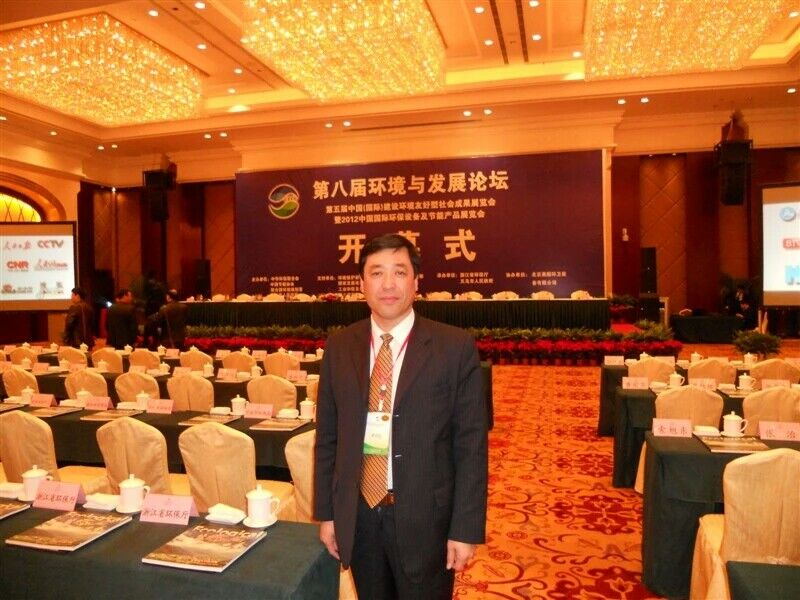 |
法律英語 |
|
|
| 陳忠誠:向翻譯譯審者請教 |
|
出處:法律顧問網(wǎng)·涉外m.dl735.cn
時(shí)間:2012/3/13 12:26:26 |
陳忠誠:向翻譯譯審者請教
拜讀了一些法律英譯的譯品,有時(shí)竟從座椅上拍案驚起并喃喃自語:怎么能譯得這樣(好/差)?!際此,往往就歸功/過于譯者。但事后冷靜下來仔細(xì)一想,覺得這樣做(只想到譯者而沒想到譯審者)是很不公平的――特別是沒有把譯審者也放在視野內(nèi),讓他們也能享受與譯者同等的待遇――受到同樣的批評和表揚(yáng)。在自己的角度來說,還從來沒有向譯審者請教過哩。反省至此,深感逝者如斯、已往不諫,而來者可追也……于是,毅然命筆,補(bǔ)上這一課,在此向法律漢譯的譯審者請教了。
執(zhí)筆伊始,就想到司法之作的要領(lǐng):兩打大字――“以事實(shí)為根據(jù),以法律為準(zhǔn)繩。”如果把這十二個(gè)大字濃縮一倍、予以概括,則可簡化為六個(gè)大字:擺事實(shí)――講道理。不過,譯審者是精通道理的,所以在下就不必班門弄斧、講什么人家已經(jīng)精通的道理了。這就規(guī)定了我的請教的任務(wù)已經(jīng)減輕了一半(否則,怎么勝任得了呢?!)――只需發(fā)現(xiàn)什么現(xiàn)象(雞毛就雞毛,蒜皮就蒜皮)就請教什么便了。
廢話少說,這就請教了:
1. 譯文與原文發(fā)生歧異時(shí)應(yīng)該怎么辦?正如你們所當(dāng)然知道的:這種歧異是經(jīng)常地、決非是少量地(絕對意義上的非少量地)在增長(隨著新譯品的增長而增長)。有的譯本(如法律出版社諸譯本)對此不作任何免責(zé)聲明;有的譯本(如外文出版和法制出版社等大戶),如所周知,有其經(jīng)典式的免責(zé)聲明:
(1) In case of discrepancy between the English translation and the original Chinese text, the Chinese edition of The Law of the People’s Republic of China shall prevail.
----The Law of the People’s Republic of China (1979-1982), Foreign Languages Press, Beijing 1987,p.ii
(2) In case of any discrepancy between the English translation and the original Chinese text, however, the Chinese text shall prevail.
----Laws and Regulations of the People’s Republic of China Governing Foreign-related Matters (1949-1990), China Legal System Publishing House, Beijing 1991, Editor’s Note
(3) 英文譯本與中文本如有歧義,以中文本為準(zhǔn)。
----同上“編輯說明”
據(jù)此,先請教一下上列兩書的譯審諸君:
甲、讀者一般只懂中文(所以要買譯本以便與洋人溝通)或只懂英文(以便通過英譯了解中國法)為多。如今你們要他們發(fā)現(xiàn)“如有”的歧義豈非強(qiáng)人所難?!只有精通漢/英兩語者才能識別歧義呀。
乙、提供商品(書)和勞務(wù)(翻譯服務(wù))的一方(你們)在消費(fèi)者即讀者于買書前一無所知的情況下就提出“以中文本為準(zhǔn)”的免責(zé)條款,這對讀者有拘束力(binding force)嗎?這樣做合法嗎?有效嗎?
丙、如果上述關(guān)于“以中文本為準(zhǔn)”的英譯也與原文或原意有歧義(例如你們的譯文有“shall”而原文原意并無此意,故存在了歧義),又以什么為準(zhǔn)呢?你們何又不作免責(zé)規(guī)定了呢?
暫且請教這些。請?jiān)倏磾?shù)例,然后繼續(xù)請教:
(4)譯文與中文本如有歧義,應(yīng)依中文本為準(zhǔn)。[其英語譯文見下例(5)]
――《上海市涉外經(jīng)濟(jì)法規(guī)規(guī)章匯編》(中英文對照)(1982-1990年),上海人民出版社1991年版,p. 636
(5)Whenever equivocality or misinterpretation turns up in the translation, the original Chinese version shall be checked as the only authentic legal text.
――同上,p.639
(6) 譯文,如與中文有歧義,以中文本為準(zhǔn)。
――同上(1991-1992),上海遠(yuǎn)東出版社1994年版,p.1
(7) Whenever equivocality or misinterpretation turns up in the translation, the original Chinese version shall be checked as the only authentic legal text.
――同上,p.2
好,繼續(xù)請教了――這回請教的是有關(guān)(4)―(7)產(chǎn)品質(zhì)量的了。請教對象則是(4)―(7)例的有關(guān)譯審諸君;請教的問題是:你們自己的原文和譯文,自己譯審過沒有?你們現(xiàn)在是否已發(fā)現(xiàn):(4)與(5)和(6)與(7)之間,其“義”不僅有“歧”,而且是互為反義的!即漢語固為“以中文為準(zhǔn)”,上列英語譯文卻是相反的涵義――以英文為準(zhǔn)![如果表示“應(yīng)以中文為準(zhǔn)”,自當(dāng)把上列譯文中的“Chinese version shall be checked”改為“Chinese version shall be checked with”――你們同意嗎?又,作為“譯審”,你們自己創(chuàng)作的原文(如上列“應(yīng)依中文本為準(zhǔn)”通呢,還是“應(yīng)以中文本為準(zhǔn)”通?)你們又審過了沒有?!――請教了!
2.請教有關(guān)譯審:下文中的“with”你們審過沒有?為什么不是“within”?!
When the assets of an enterprise are not enough for payment of its debts, the creditors who have objections to the plan for distribution of the enterprise’ s assets may, with 15 days of approval of the plan by the creditors’ meeting, petition the people’ s court to declare the enterprise bankrupt.
Ibid., p35
對此,有兩事請教:
甲、上列譯文中用“with”而不是“within”――你們有何譯審意見?
乙、 同一譯文中先有“enterprise’ s”、繼有“people’ s”――而且在全書中凡“’”與“s”之間與上類場合均空出一個(gè)space。這種與正字法不合的印刷,你們注意到?jīng)]有?如已經(jīng)注意到了――為什么不加改正地是使之呈現(xiàn)在讀者眼前?!
3. 下列譯文中,怎么原文“應(yīng)持有有關(guān)主管部門出具的證明文件”等十五個(gè)大字所表達(dá)的原意竟影蹤全無了呢?你們注意到了沒有?!如注意到了――何以聽之任之;如果根本未予注意――則其故安在?!是反正在“如有歧義以原文為準(zhǔn)”這頂保險(xiǎn)傘下可心安理得、有恃無恐嗎?!
第十七條 境外人員在新區(qū)內(nèi)長期居住,需運(yùn)進(jìn)安家物品(不包括轎車),應(yīng)持有關(guān)部門出具的證明文件向海關(guān)申請,經(jīng)海關(guān)核準(zhǔn),在自用、合理數(shù)量范圍內(nèi)予以免稅驗(yàn)放。
Article 17 Person from abroad who need to import household necessities (motor cars not included) resides permanently in the New Area may apply to the Customs for permission. If the application is examined and approved by the Customs, such imported articles shall be exempted provided that they are for personal use only and in reasonable quantity.
--Ibid., p.150
4.同一個(gè)單位“海關(guān)總署”在下列兩個(gè)條文中怎么異化為兩個(gè)不同的單位名稱了――你們發(fā)現(xiàn)了沒有?為什么?――
(1)海關(guān)總署令
Order …of the General Customs Administration
---Ibid., p.142
(2)本法由海關(guān)總署負(fù)責(zé)解釋。
The General Administration of the Customs shall be responsible for the interpretation of these procedures.
----Ibid., p. 151
5. 大凡書刊為便于查閱,多有目錄并注明頁次。但Shanghai’s Foreign Economic Rules and Regulations (1993-1994) 一書,雖有目錄頁達(dá)六頁,卻一律不附頁次――雖有目錄仍無法查閱,以致目錄頁次形同虛設(shè)。未悉譯審者諸公是何意圖?――請教了。
6.《上海市涉外經(jīng)濟(jì)法規(guī)規(guī)章匯編》(1993-1994)中英文對照本,其英語譯名見于封面的(1)與見于扉頁上的(2)竟各不相同――判如兩書:
(1) Shanghai’s Foreign Economic Rules and Regulations
(2) Shanghai’s Foreign-Related Economic Rules and Regulations
此舉是何意圖,莫名其妙。可得聞乎!請教了!
7.《上海市引進(jìn)國外專家暫行辦法》下列英譯中的“From”是根據(jù)什么習(xí)慣用法規(guī)則而大寫的?請教了!
(3) Interim Procedures of Shanghai Municipality on the Intake of Experts From Abroad
――《上海市涉外經(jīng)濟(jì)法規(guī)規(guī)章匯編》(1993-1994)中英文對照本目錄第3頁
但同是這個(gè)《暫行辦法》在同書334頁上的下列英譯中出現(xiàn)的,卻是小寫的“from”了。這又是根據(jù)什么規(guī)則而小寫的呢?亦在此一并請教了:
Interim Procedures of Shanghai Municipality on the Intake of experts from Abroad
8.同樣涵義的概念“職工”,在同一個(gè)條例(《上海市外商投資企業(yè)勞動(dòng)人事管理?xiàng)l例》)中,出現(xiàn)于不同頁次上,譯名就各不相同了――這是譯審工作的要求、貫徹雙百方針,還是出于偶然?請教了。
(1) 全部中國職工
all its Chinese staff and workers
――《上海市涉外經(jīng)濟(jì)法規(guī)規(guī)章匯編》(1993-1994)p. 484
(2)發(fā)給職工保健食品
allocate health food to the staff members and workers
――同上,p.487
請教兩點(diǎn):
甲、 同一概念不用同一譯名是何考慮?
乙、 表示上述“職工”一詞,除上列兩譯外,尚有“employees”與“staffers and workers”,卻不為上列譯文所用。其故安在?
9.下列譯文中的“was”究竟何從說起,從何譯起?
Article 18 The starting date of social relief for an individual person or a family that was been approved as recipient of social relief shall be the very month in which the date of making the approval decision falls。
----New Laws and regulations Monthly Supplement (Chinese-English)1997.1,p.163
10.請教法律出版社中英對照《中華人民共和國對外經(jīng)濟(jì)法規(guī)匯編》第六集中總共僅156條的《民法通則》英譯本的譯審者諸公:其中至少8條,其下列譯文中有下劃線的錯(cuò)別字,你們發(fā)現(xiàn)了嗎?為什么?打算如何補(bǔ)救?
(1) Article 13…
A person unable to understand fully the propriety of his or her own acts is a person of limited capacity and may engage incivil activities,… ----p.60
(2) Article 15…the place where he or she usually esides is deemed to be his or her domicile. ----p.60
(3) Article 19 … Where the person is declared by the People’s Court to the incompetent or …, the People’s Court, may upon application of the mentality ill person himself or of and interested person, declare…
----p.62
(4) Article 69 In any of the following situation the
----p.72
(5)Article 70 where one of the following situation occurs…
----p.73
(6)Article 100 A citizen enjoys a right to his orher likeness….
----p.81
(7) Article 148 The law of the country which has the closest connection with the person entitled to supprot applies to support
----p.89
(8)Article 150 Where foreign law or international usuages is applied in accordance with…
Ibid.
對此,你們想到過(哪怕只是一剎那)勘誤嗎?(錯(cuò)誤是人們會犯的――能改就好!)
11.以下所列是兩個(gè)權(quán)威單位(人大法工委和國務(wù)院法制局)組織翻譯的我《憲法》第8條的兩種譯文,請讀者鑒別有何不同:
第8條 農(nóng)村人民公社、農(nóng)業(yè)生產(chǎn)合作社和其他生產(chǎn)、供銷、信用、消費(fèi)等各種形式的合作經(jīng)濟(jì),是社會主義勞動(dòng)群眾集體所有制經(jīng)濟(jì)。參加農(nóng)村集體經(jīng)濟(jì)組織的勞動(dòng)者,有權(quán)在法律規(guī)定的范圍內(nèi)經(jīng)營自留地、自留山、家庭副業(yè)和飼養(yǎng)自留畜。
Article 8 Rural people’s communes, agricultural producers cooperatives and other forms of cooperative economy, such as producers’ supply and marketing, credit and consumers cooperatives, belong to the sector of socialist economy under collective ownership by the working people. Working people who are members of rural economic collectives have the right, within the limits prescribed by law, to farm plots of cropland and hilly land allotted for their private use, engage in household sideline production and raise privately owned livestock.
-----The Law of the People’s Republic of China (1979-1982), Beijing 1987, p.7
(2) Article 8 Rural people’s communes, agricultural producers cooperatives and other forms of cooperative economy, such as producers’ supply and marketing, credit and consumers cooperatives, belong to the sector of socialist economy under collective ownership by the working people. Working people who are members of rural economic collective have the right, within the limits prescribed by law, to farm plots of cropland and hilly land allotted for their private use, engage in household sideline production and raise privately owned livestock.
---- Laws and Regulations of the People’s Republic of China Governing Foreign-related Matters, China Legal System Publishing House, Beijing 1991.7 p.282
當(dāng)然,我們主要還是要請教上列兩譯本的譯審諸公:兩譯有無異同?其異同是有意識的經(jīng)過兩套譯審人馬討論過的,還是無意識的、事出偶然?
12.對《民法通則》某條款,有如下譯文兩則,出自不同版本。愿向兩譯本的兩套譯審查班子,提出同上問題請教:
(1) Any taxes, debts and other unpaid expenses owed by a missing person shall defrayed by the custodian of the missing person’s property.
----The Laws of the People’s Republic of China (1983~1986), p.229
(2) Any taxes, debts and other unpaid expenses owed by a missing person shall defrayed by the custodian out of the missing person’s property.
----Laws and Regulations of the People’s Republic of China Governing Foreign-related Matters, Foreign Language Press, Beijing 1991.7,p.334
對所請教的問題的期待中亦即唯一的答案對提高譯品質(zhì)量會產(chǎn)生有效的幫助。請有關(guān)譯審諸公認(rèn)真解答。
13.我們發(fā)現(xiàn)盡管不止一個(gè)譯本,但我國《憲法》第137條的譯本都是一律的:
中華人民共和國國徽,中間是五星照耀下的天安門,周圍是谷穗和齒輪。
(2) The national emblem of the People’s Republic of China consists of an image of Tian’anmen in its centre illuminated by five stars and encircled by ears of grain and cogwheel.
對此,擬請教各譯本的譯審者諸公:該條英譯對國徽的描述是確切的嗎?(例如,不但原文“中間”被譯為“中心”而且畫面上天安門也不在“中心”。難道就不必更正重譯嗎?
請教至此,本擬打住。奈忽然發(fā)現(xiàn)最后一請不多不少正好為13點(diǎn),恐引起誤解,諸多不便。援借重Wehofen 氏在其大作Legal Writing Style 中的高見,作為下列第14點(diǎn),向法律英譯的譯審諸公請教――因?qū)ο鬄樽g審者諸公,就援引Wehofen氏的原文而不在諸公面前班門弄斧譯成漢語了:
14. Proofread
One final word of advice : proofread your work before you let it go out. This applies not only to briefs but to anything you write, from letters to wills. The best of typists make mistakes, and do printers. Typographical errors will appear most often as misspellings. Misspelling is one of the most obvious marks of illiteracy, so the reader who finds you apparently misspelling words may mark you down for an ignoramus. If he is kind, he may prefer to assume that you knew better but were merely careless about proofreading. A careless lawyer, however, is not the sort that even the most charitable person cares to entrust with important interests.
Misspellings and other typographical errors in the text can usually be caught by careful reading, but misspellings in names and errors in numerals, as in case citations, can be found only by checking against the original. Your cause is harmed if counsel for the other party can casually correct one of your citations by referring to “Fisser v. Int. Bank,282 F.2d 231(cited by plaintiff as Fisher v. Int. Bank, 282 F.2d 281).” This sort of thing will prompt the court to conclude that you are guilty of citing authorities at second hand.
In conclusion, Appellant contends that he has brought to the attention of this Court and earlier decision which was previously overlooked and deems it controlling on the issues involved herein.
One need read only this one sentence to understand why the decision was overlooked. Counsel is obviously careless----in research as in proofreading. He is also not a very effective writer. Why does he “contend” that he has brought a case to the Court’s attention? If he has done so, why not say “he has” instead of contending that he has? And why does he merely “deem” it controlling? The answer to this we can guess: he doesn’t know what the word means.
After all the work of research and writing, one may be tempted to hand the manuscript over to a typist with a feeling of relief that the job is done. But it is not done. The most meticulous care in checking citations and quotations, and in polishing the wording for maximum effect, can be ruined if the final draft contains some howler that makes a shambles of your statement. Careful proofreading is a relatively minor chore. It is worth doing carefully. |
(聲明:本站所使用圖片及文章如無注明本站原創(chuàng)均為網(wǎng)上轉(zhuǎn)載而來,本站刊載內(nèi)容以共享和研究為目的,如對刊載內(nèi)容有異議,請聯(lián)系本站站長。本站文章標(biāo)有原創(chuàng)文章字樣或者署名本站律師姓名者,轉(zhuǎn)載時(shí)請務(wù)必注明出處和作者,否則將追究其法律責(zé)任。) |
上一篇:授權(quán)委托書(英漢對照)
下一篇:河北省高院院長高勇:聶樹斌案仍在核查尚未定性
|
 |
| 在線咨詢 |
|
| 聯(lián)系我們 |
電話:13930139603 13651281807
QQ號:373036737
郵箱:373036737@qq.com |
|
|
|
|










